
For this week, I’m recycling a post I shared on my former blog, Andrea Is Reading.
Last year, in an attempt to read more of my unread books, I participated in a monthly challenge from Whitney, who used to write the blog The Unread Shelf. Each month had a one-word prompt, and the goal was to read a book I own that tied into that prompt. One of last year’s words was “enough.” As I thought about what “enough” means, I picked up Essentialism: The Disciplined Pursuit of Less by Greg McKeown. I kept thinking of other books that fit this idea, which inspired me to start this 10 on a Theme series. Today, I’ll share ten books that mean “enough” to me.
“Enough” resonated so strongly because I find that I’m constantly feeling the tug of wanting less and more at the same time:
I want less clutter but more stuff (clothes, shoes, makeup, books, etc.).
I want less stress but often take on more projects or responsibilities.
I want less pressure but hold myself to more ever-growing standards.
If you relate to those dueling desires, I hope you find a book in today’s post that will inspire and remind you that you are and have enough.
This quirky novel about an office worker who pretends to be pregnant might seem like an odd choice for this list, but I chose it for a reason. As an unmarried woman who doesn’t want children, I’ve been on the receiving end of pity. “One day, it will happen for you,” some people have said. I smile politely, but what I want to say is, “I really hope it doesn’t.”
Emi Yagi’s protagonist knew she would have to become a mother to get respect in her male-dominated office. She knew she would have to become a mother to please her family and form the connections she longed to have. This darkly humorous story reminds me that women should never feel pressured to procreate to be taken seriously. Diary of a Void reminds me that I’m enough without kids.
As I mentioned, Essentialism is the title that inspired this whole list. Within a few days of starting it, I said no to something someone asked me to do. It was for a good cause, something I had done in the past, but I knew I already had too much on my plate. This image toward the beginning of the book struck a nerve:
I knew I was doing too much, but seeing the visual of what that looked like was powerful. This book is the right one at the right time because it advises me that I’m already doing enough. More isn’t always better.
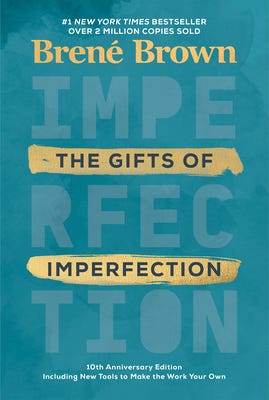
As I pondered this list, I kept returning to Brené Brown’s idea of hustling for worthiness. I do it, and you probably do, too. We think we have to be a certain way or do specific things to be worthy or whole. I love this quote from Brown:
“When we spend a lifetime trying to distance ourselves from the parts of our lives that don’t fit with who we think we’re supposed to be, we stand outside of our story and hustle for our worthiness by constantly performing, perfecting, pleasing, and proving. Our sense of worthiness—that critically important piece that gives us access to love and belonging—lives inside of our story.”
Brown’s work points out how vulnerability is powerful, and perfectionism is dangerous. The latter comes to me easier than the former, but I’m working on ceasing the hustle and embracing the rest that comes with living fully in my story.
There are moments when I put pressure on myself to succeed in significant, splashy ways. I’ll believe I need a more impressive job, a new, expensive car, or a certain kind of home. But I find great joy and contentment in my day-to-day life. It’s a life that isn’t exciting, but it’s a life I love.
Glaciers is a short but powerful book about a day in the life of Isabel, a twenty-something woman who works in library archives. She, too, has a quiet life in which she goes to cafes, thrift stores, and pines for the man down the hall. The ordinariness of her life emphasizes the beauty in the everyday familiarities we often take for granted. Glaciers tells me my life is enough just like it is. There’s immense beauty in a quiet life.
I once told a friend that I try to do most of what Roxane Gay tells me to do. She’s a brilliant cultural critic and writer, and Hunger is an incredible book. In it, Gay describes a tragic sexual assault that happened to her as a girl. As a result, she developed an eating disorder. (Hunger doesn’t shy away from details, so if you’re sensitive to those topics, this might not be the book for you.) Though much of this book is heartbreaking, Gay’s resilience and vulnerability convince me that my body is enough just as it is, no matter its size, wounds, or scars. Hers is too, and so is yours. In a world that constantly polices and critiques women’s bodies, it’s an act of resistance to love and nurture our skin.
For a while, Chanel Miller was known as Jane Doe in the sexual assault case against Brock Turner. Throughout the trial, her body, behavior, and everything else about her life were up for scrutiny and debate. What must have felt powerless at the time fuels this gorgeous memoir in which Miller claims her voice. Know My Name is a book I’d eagerly hand to any woman who needs a nudge to use her voice too. When one woman speaks, she makes it easier for the woman who will follow her.
(I also mentioned this book in my recent post, Seven Books That Have Shaped My Life.)
Several years ago, Christian Wiman was diagnosed with cancer. Yet, as he faced mortality, he rediscovered faith. This book is a collection of essays in which he talks about his faith and how complex it truly is. Wiman is a poet, and that’s obvious on every page. His prose is exquisite, and his musings are relatable to any person of faith who’s been a believer for longer than a week. He addresses contradictions and questions with tenderness and curiosity, never settling for sweeping uncertainties under the rug. Wiman’s thoughts on belief tell me that faith isn’t always a big emotion or production; sometimes it’s a crumb that you guard with your life, and that’s enough.
“You’re so quiet.”
I’m never sure how to respond when someone says this to me. “Yes, I know,” seems rude. “What would you like me to say?” does too. This is another moment when I smile and shrug my shoulders, knowing the person who spoke those words doesn’t know me and has likely shut down the possibility of me wanting to know them.
In Quiet, Susan Cain explores the nature of introversion. This book is a gift to those of us who need plenty of aloneness to recharge, who weigh our words carefully, or who choose not to use them at all. It celebrates introverts and explains what extroverts can learn from their quiet peers. Cain’s work tells me that what some people may view as a deficiency is actually a strength.
Matt Haig is a prolific writer who also struggles with depression. He’s exceptionally open about his battles, and in this book, he shares the ups and downs of his life and explains how he found the will to go on after a suicide attempt. This book is written in short vignettes, perfect for those who are anxious or have trouble focusing. Haig’s book isn’t a self-help guide that includes 8 Steps to a Happier Life. Instead, he gives readers an honest account of how depression can be endured and managed and shares what joy exists on the other side of its darkness. Reasons to Stay Alive is an important book about how the small, ordinary things in our lives can be enough for us to keep going, even when there’s pain. I love this quote:
“You will one day experience joy that matches this pain. You will cry euphoric tears at the Beach Boys, you will stare down at a baby’s face as she lies asleep in your lap, you will make great friends, you will eat delicious foods you haven’t tried yet, you will be able to look at a view from a high place and not assess the likelihood of dying from falling. There are books you haven’t read yet that will enrich you, films you will watch while eating extra-large buckets of popcorn, and you will dance and laugh and have sex and go for runs by the river and have late-night conversations and laugh until it hurts. Life is waiting for you. You might be stuck here for a while, but the world isn’t going anywhere. Hang on in there if you can. Life is always worth it.”
All the other books on this list address the internal idea of enoughness; this book addresses our physical spaces. Part of me wants a minimalist home, a capsule wardrobe, and only essential items in my drawers or cabinets. But another part wants to purchase the entirety of Barnes and Noble and Anthropologie. My maximalist side usually wins out, and this can be a problem.
Simple Matters by Erin Boyle (who has a great Substack) is a beautifully written and photographed book that speaks to my maximalist self and gently nudges me toward the minimalist life that is probably better for me in the end. Boyle is never preachy or condescending to those of us with 11 backup hand soaps or 17 half-burned candles. (I only have six backup hand soaps now, so I’m doing great.) I return to this book when I need a gentle reminder that I have enough stuff.
How do you interpret this theme? What books would make your “enough” list? I’d love to know!




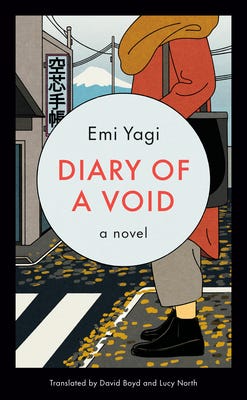
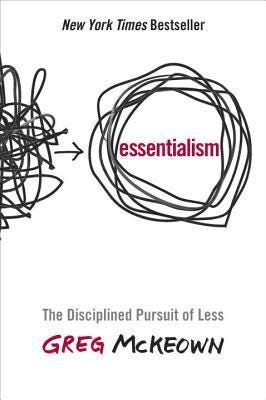
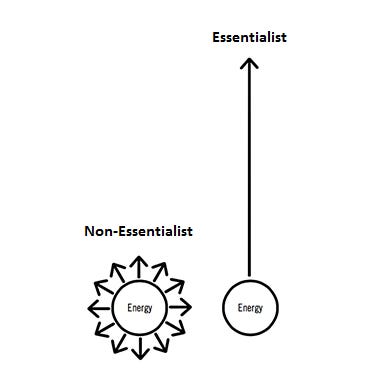
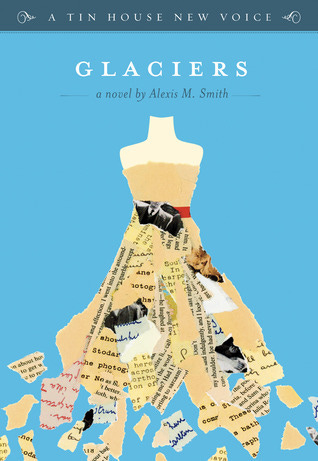
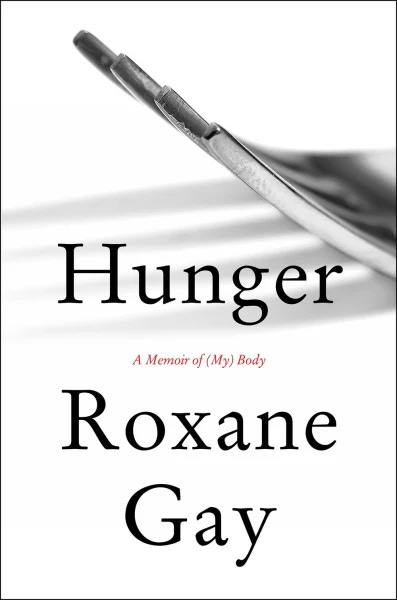
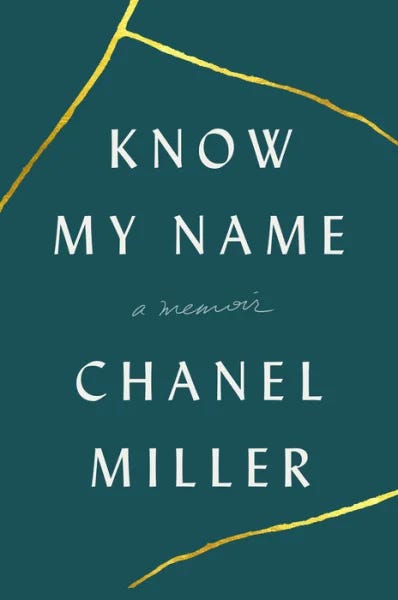
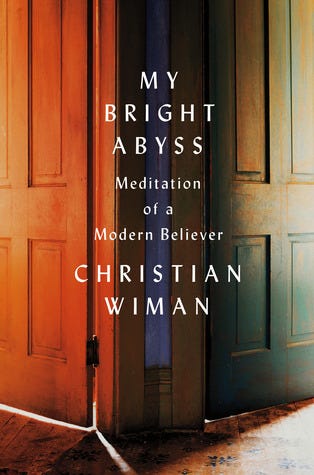
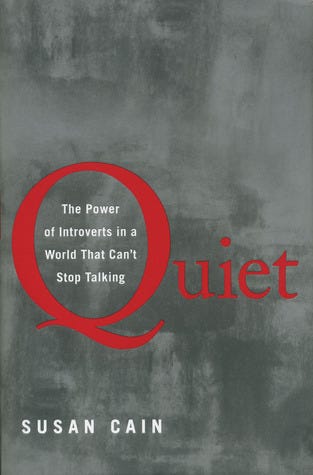
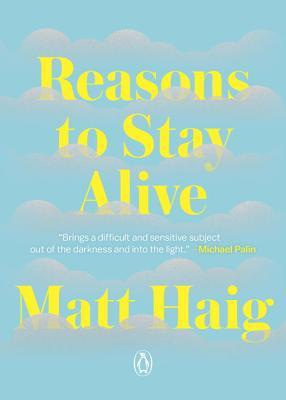
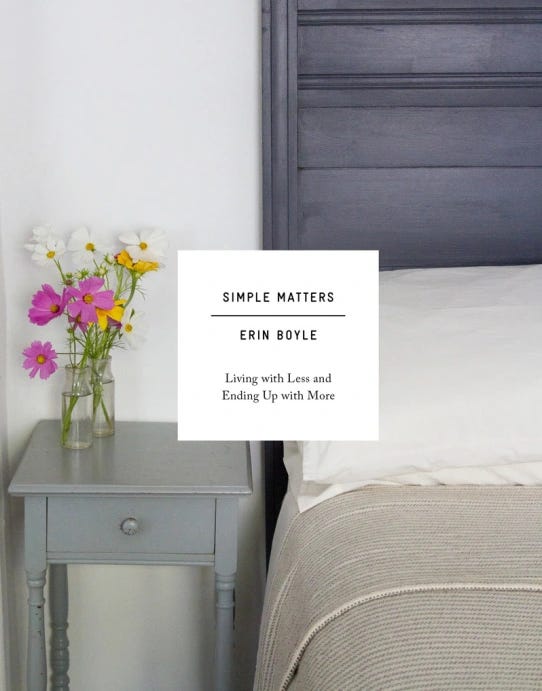
I also really love the quote you chose. It goes along with my reflections of late and what Liz Gilbert wrote last week about hustling rather than flowing.
Good for you for recycling a golden post - another reminder of enoughness
I have read The Gifts of Imperfection since I read this the first time. It is now on my special, sacred shelves for rereads. I love the part where she talks about waking up feeling like we don’t have enough of anything and working from a place of scarcity instead of abundance.